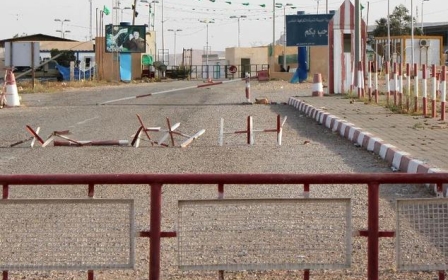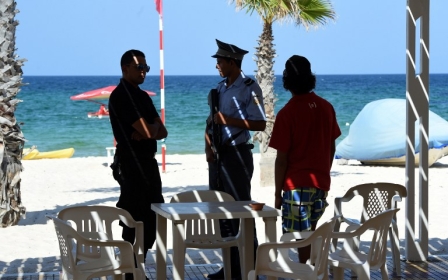Tunisian ministers in UK warn travel restrictions will increase extremist threat

Tunisian ministers visited the UK on Monday to lobby the government to lift travel restrictions that they warn could cripple the country’s economy and leave it vulnerable to further attack.
The UK’s Foreign and Commonwealth Office (FCO), which is responsible for protecting British nationals around the world, this month ordered all nationals to leave Tunisia, advising against “all but essential travel” to the North African country.
The warning came in the wake of June’s beach massacre, in which a Tunisian gunman killed 38 people at a popular beach resort, 30 of them British.
A high-level delegation from Tunisia visited the UK on Monday to stress the importance of ongoing co-operation between the two countries.
Meeting ministers and opposition officials at the Houses of Parliament in London, Tunisia’s Minister of Transport Mahmoud Ben Romdhane said he had been “surprised” by the warning, which had already had an impact on the country’s economy.
One in four Tunisians make their living from the tourism trade. Since the attack on 26 June, economic activity in the country is down by some 20 percent.
The Tunisian delegation on Monday called for the UK’s travel guidance to be reversed, warning that Tunisia now needs more diplomatic and economic support from the international community in its fight against extremism.
“We now have two models: the Islamic State model and the Tunisian model,” said Romdhane.
“It is my hope that the oldest democracy in the world, the United Kingdom, and the newest, will remain in solidarity.”
"Terrorists want there to be no bridges between nations," said Tourism Minister Selma Elloumi Rekik, saying that Tunisia needed more international support, rather than travel restrictions, to counter extremism.
The delegation had earlier met with Tobias Ellwood, an FCO official focusing on the Middle East and North Africa.
Ellwood did not ask for any extra security measures to be imposed in exchange for the restrictions being lifted, but asked for details of the measures already in place.
Tunisia, which is likely to lose around half a billion dollars in tourism revenues, has admitted that its security services were unprepared for the beach attack, which took place just months after gunmen targeted the Bardo Museum in Tunis, killing 19, the majority of them tourists.
However, officials now say extra security measures are in place, with armed police stationed at all hotels and beaches frequented by tourists.
Rekik said Tunis was working with international partners like the UK, France, Italy and Germany to improve security throughout the country.
Prime Minister Habib Essid said earlier this month that he was working with unnamed “partners” to secure funding for electronic checkpoints along Tunisia’s border with Libya, where the Sousse attacker received his training.
Questions are to be put on Tuesday to the Home Secretary Theresa May, as opposition politicians seek to challenge the government’s policy on Tunisia.
The issue has already caused rifts within the ruling Conservative Party, with Crispin Blunt, the Conservative chair of the foreign affairs committee, saying he would still travel to Tunisia despite the FCO advice against it.
Among UK nationals to be dismayed by the travel restrictions are diaspora Tunisians, who are thought to number upwards of 7,000.
Mehdi Behi, representing an association for British Tunisians, said many people had had flights cancelled, or were required to pay up to £3,000 ($4,670) for a seat on the plane.
“I think the restrictions are very harsh,” Behi told Middle East Eye, noting that many had been unable to visit family in Tunisia over the Eid holiday which finished on Sunday.
New MEE newsletter: Jerusalem Dispatch
Sign up to get the latest insights and analysis on Israel-Palestine, alongside Turkey Unpacked and other MEE newsletters
Middle East Eye delivers independent and unrivalled coverage and analysis of the Middle East, North Africa and beyond. To learn more about republishing this content and the associated fees, please fill out this form. More about MEE can be found here.




